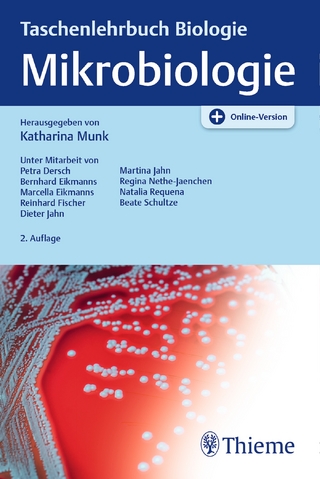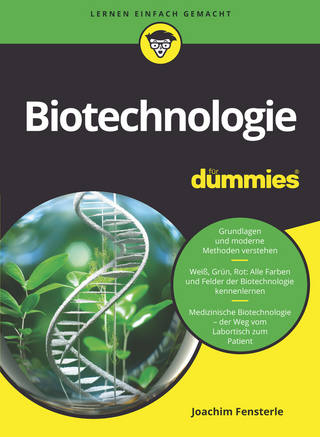
Industrial Water Conservation
Elsevier - Health Sciences Division (Verlag)
978-0-443-13291-9 (ISBN)
- Noch nicht erschienen (ca. Januar 2025)
- Versandkostenfrei innerhalb Deutschlands
- Auch auf Rechnung
- Verfügbarkeit in der Filiale vor Ort prüfen
- Artikel merken
Dominic Foo is a Professor of Process Design and Integration at the University of Nottingham Malaysia and is the Founding Director for the Centre of Excellence for Green Technologies. He is a Fellow of the Institution of Chemical Engineers (IChemE), Fellow of the Academy of Sciences Malaysia (ASM), Fellow of the Institution of Engineers Malaysia (IEM), Chartered Engineer (CEng) with the Engineering Council UK, Professional Engineer (PEng) with the Board of Engineer Malaysia (BEM), ASEAN Chartered Professional Engineers (ACPE), as well as the President for the Asia Pacific Confederation of Chemical Engineering (APCChE). He is top 1% world-renowned scientist according to Stanford List, working in process integration for resource conservation and CO2 reduction. Professor Foo is an active author, with eight books, more than 190 journal papers and made more than 240 conference presentations, with more than 30 keynote/plenary speeches. Professor Foo is the Editor-in-Chief for Process Integration and Optimization for Sustainability (Springer Nature), Subject Editor for Process Safety & Environmental Protection (Elsevier), and editorial board members for several other renowned journals. He is the winners of the Innovator of the Year Award 2009 of IChemE, Young Engineer Award 2010 of IEM, Outstanding Young Malaysian Award 2012 of Junior Chamber International (JCI), Outstanding Asian Researcher and Engineer 2013 (Society of Chemical Engineers, Japan), and Top Research Scientist Malaysia 2016 (ASM). Thokozani Majozi is a full professor in the School of Chemical and Metallurgical Engineering, Wits University, where he also holds an NRF/DST Chair in Sustainable Process Engineering. He is also the Executive Dean of the Faculty of Engineering and the Built Environment. Prior to joining Wits in 2013, he was a professor at the University of Pretoria, where he spent nearly 10 years, and an associate professor in computer science at the University of Pannonia in Hungary from 2005 to 2009. A chemical engineer by profession, Majozi completed his PhD in Process Integration at the University of Manchester Institute of Science and Technology (UMIST) in the United Kingdom (UK). He is a member of various international scientific committees and a Fellow for the Institute of Chemical Engineering (UK), Academy of Sciences of South Africa (ASSAf), Academy of Engineering of SA, Water Institute of Southern Africa and African Academy of Sciences (AAS). He spent the early years of his career in the industrial sector, working for Unilever, Dow AgroSciences and Sasol Technology. Majozi is author and co-author of more than 200 scientific publications, including a book entitled Batch Chemical Process Integration published by Springer in January 2010, a book entitled Synthesis, Design and Resources Optimization, published by CRC Press/Taylor and Francis in 2015 and a book entitled Understanding Batch Chemical Processes, also published by CRC Press/Taylor and Francis in 2017. Xiao Feng is a Professor of Chemical Engineering at Xi’an Jiaotong University. She is the Vice-Chair of Thermodynamics and Engineering Application Committee, China Energy Research Society, Standing Director of Chinese industrial Ecology Economics and Technology Society, and Standing Director of Water Treatment and Reuse Committee, Chinese Society of Environment Science. She is working in process integration. Professor Feng is an active author, with three books, more than 150 international journal papers. Professor Feng is editorial board members for Process Integration and Optimization for Sustainability, Processes, Energy Conversion and Storage, and several Chinese journals. Chun Deng is a Professor of Chemical Engineering at China University of Petroleum, Beijing. He is the Member of the committee of Process System Engineering of China System Engineering Society. He is working in process integration and gas separation. Prof. Deng has published more than 30 international journal papers. Prof. Deng is editorial board members for Process Integration and Optimization for Sustainability, Petroleum Science, and several Chinese journals.
Part A – Fundamentals of water recovery system design
1. Water pinch analysis for concentration-base (e.g. COD, suspended solid) and property-base (e.g. pH, acidity) water recovery (Deng)
2. Pinch-based optimisation methods for water recovery (Foo)
3. Mathematical programming for concentration-based (e.g. COD, suspended solid) and property-base (e.g. pH, acidity) water recovery (Feng)
4. Water recovery for batch processes (Majozi)
Part B – Industrial case studies
5. Case study 1 – catalyst plant (Feng)
6. Case study 2 – viscose fiber plant (Feng)
7. Case study 3 – printing and dyeing plant (Feng)
8. Case study 4 – synthetic rubber production (Foo)
9. Case study 5 – gas-to-liquid plant (Foo)
10. Case study 6 –wastewater interception and recovery system of a refinery plant (Deng)
11. Case study 7 –large-scale water network of a refinery plant (Deng)
12. Case study 8 – electric power plant (Majozi)
13. Case study 9 – pharmaceutical plant (Majozi)
14. Case study 10 – dairy facility (Majozi)
| Erscheint lt. Verlag | 1.1.2025 |
|---|---|
| Verlagsort | Philadelphia |
| Sprache | englisch |
| Maße | 152 x 229 mm |
| Themenwelt | Naturwissenschaften ► Biologie ► Mikrobiologie / Immunologie |
| Naturwissenschaften ► Chemie ► Technische Chemie | |
| Technik ► Umwelttechnik / Biotechnologie | |
| ISBN-10 | 0-443-13291-7 / 0443132917 |
| ISBN-13 | 978-0-443-13291-9 / 9780443132919 |
| Zustand | Neuware |
| Haben Sie eine Frage zum Produkt? |
aus dem Bereich


